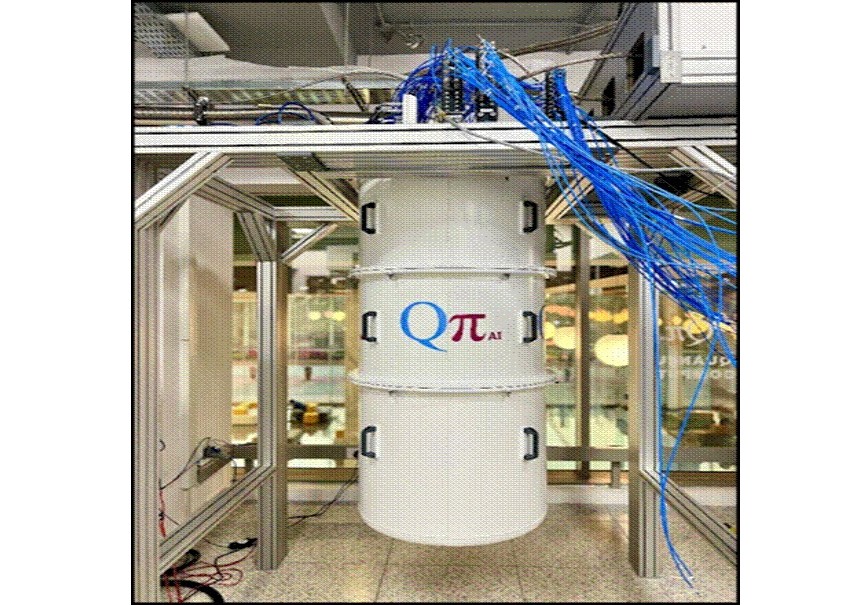Bengaluru-based QpiAI, one of the 8 startups selected under the National Quantum Mission, coordinated by the Department of Science and Technology (DST) announced the launch of one of India’s most powerful quantum computers featuring 25 superconducting qubits, on the occasion of World Quantum Day.
QpiAI-Indus, the quantum computer launched, is the first full-stack quantum computing system in the country and combines advanced quantum hardware, scalable control, and optimized software for transformative hybrid computing. It integrates advanced quantum processors, next-generation Quantum-HPC software platforms, and AI-enhanced quantum solutions.
With this milestone, QpiAI is driving deep-science and deep-tech innovation across life sciences, drug discovery, materials sciences, mobility, logistics, sustainability, and climate action.
As a part of India’s National Quantum Mission, QpiAI is at the forefront of building the country’s quantum computing technology ecosystem, national quantum adoption programs, and creating one of the world’s largest quantum talent ecosystems. QpiAI is committed to accelerating India’s quantum journey, making quantum computing technologies practical, accessible, and globally impactful. The technologies from the company, bootstrapped in 2019, have led to 11 patent applications and generated a revenue of around Rs 1 million per annum. They have also generated substantial capital from the Small Industries Development Bank of India (SIDBI).
With this announcement on World Quantum Day which marks a shared vision for a quantum-enabled future that transforms industries, accelerates scientific discovery, and empowers the next generation of innovators, QpiAI joins the global community of scientists, engineers, policy makers, and enthusiasts in celebrating the remarkable progress and possibilities unlocked by quantum science and technology.
What is National Quantum Mission
National Quantum Mission (NQM) is a major initiative by the Government of India to propel the nation to the forefront of quantum technology research and development. Approved on 19th April 2023 by the Union Cabinet, the mission is set to span from 2023–24 to 2030–31, with a budget allocation of ₹6,003.65 crore.
Many countries are actively working on quantum computing and other quantum technologies, and India has a great opportunity to make significant contributions. The national quantum mission offers India a chance to play a key role, especially with favourable conditions right now. The outcomes of this mission could impact healthcare, clean energy, climate change, job creation, and much more, affecting every citizen’s life.
The National Quantum Mission (NQM) is one of the nine initiatives under the Prime Minister’s Science Technology Innovation Advisory Council (PMSTIAC), aimed at positioning India as a global leader in quantum technology. By fostering advancements in secure quantum communication, quantum computing, and precision sensing, the mission is poised to transform sectors such as telecommunications, defense, finance, and healthcare, delivering a profound societal impact.
The Mission is a nationwide initiative driving cutting-edge advancements in quantum technology. As part of this mission, four Thematic Hubs (T-Hubs) have been set up, bringing together 14 Technical Groups across 17 states and 2 Union Territories. These hubs focus on technology innovation, skill development, entrepreneurship, industry partnerships, and global collaborations, ensuring a truly national impact. Women scientists from every corner of the country are actively encouraged to participate and benefit from the mission’s exciting programs.
The four T-Hubs have been established across leading institutions in India:
Indian Institute of Science (IISc) Bengaluru
Indian Institute of Technology (IIT), Madras in association with the Centre for Development of Telematics, New Delhi
Indian Institute of Technology (IIT), Bombay
Indian Institute of Technology (IIT), Delhi.
These hubs were selected through a rigorous competitive process and each hub focuses on a specific quantum domain, driving advancements in Quantum Computing, Quantum Communication, Quantum Sensing & Metrology, and Quantum Materials & Devices.



